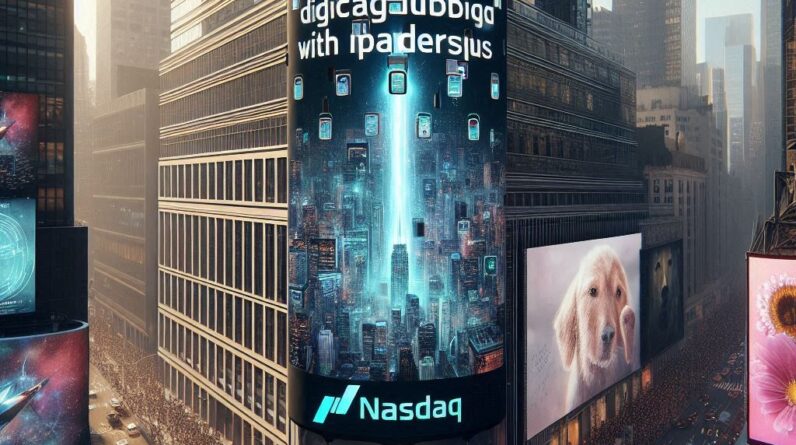
[ad_1]
Chris Keefe, chief product officer at Poppulo shares eight ways to embrace AI in digital signage for business success, contending that businesses must shirk the fear of change and look at AI as a powerful opportunity.
 Image provided by Adobe Stock.
Image provided by Adobe Stock.
 |
Chris Keefe is chief product officer at Poppulo. Image provided. |
In today’s hypercompetitive business landscape, companies need innovative marketing tools to captivate their target audience and drive tangible results. Artificial intelligence (AI) has a multitude of uses, but one of the strongest is its potential to enable businesses to connect with their customers in new ways.
From personalized ad targeting based on data-fed AI models to streamlining content creation processes and maintaining harmonious messaging, the potential of AI in digital signage is vast; today, we’ll look at eight simple ways to start tapping into that potential:
- Demographic-level personalization
- Predicting and tracking buyer behavior
- Streamlining content creation and management
- Content creation assistance and automation
- Harmonious messaging and standards
- Relevant and impactful internal communications
- Revolutionizing device management and issue remediation
- Proactive monitoring and issue detection
In the era of data-driven decision-making, businesses are constantly seeking ways to harness the vast amounts of information at their disposal. When it comes to digital signage, AI can transform static displays into dynamic marketing powerhouses capable of delivering highly relevant and targeted content.
AI algorithms can curate and display content that resonates with viewers; on demand or timed perfectly to the hour, day, week, and even season. But AI’s capabilities extend far beyond targeted content delivery, with continuous learning and adaptation to drive improved engagement. AI can utilize vital demographic and audience information, including sentiment, age, attention time, and more. This valuable data further refines the content generation process, ensuring that every piece of displayed information is tailored precisely to the preferences and characteristics of the viewers.
1) Demographic-level personalization
By tapping into ongoing data sources, including the local neighborhood, social media trends, traffic patterns, weather, and buying behavior, AI algorithms gain a deep understanding of audience characteristics and preferences. Gone are the days of one-size-fits-all advertising. With AI, businesses can craft highly targeted messages that speak directly to specific and segmented demographics.
Imagine a retail store that can predict which ad will resonate most with a customer based on their previous buying habits. This level of precision ensures that the right message reaches the right customer at the right time, significantly enhancing the likelihood of conversions and customer satisfaction.
2) Predicting and tracking buyer behavior
Understanding buyer behavior is the Holy Grail of marketing. Through continuous learning, AI algorithms become adept at predicting buyer behavior associated with specific content items, content formatting, or entire campaigns. With AI prediction, companies can launch campaigns that they know have high odds of succeeding rather than relying on trial and error. Plus, with ongoing data tracking and analysis, marketing teams can react in real time, making data-driven adjustments to further increase ROI.
3) Streamlining content creation and management
Companies strive to deliver compelling messages and captivating visuals to their target audience, but the process of content creation and management is time-consuming and resource-intensive. Leveraging AI can help streamline these processes, maximize efficiency, and ensure impactful messaging.
4) Content creation assistance and automation
With AI in digital signage, businesses can tap into a wealth of automated tools and content creation assistants that streamline the creative workflow and amplify productivity.
AI-driven automation can generate supporting media content, including videos, imagery, and even digital signage templates. This automation not only saves valuable time but also ensures consistency in visual branding across multiple platforms.
Additionally, AI can transform data-driven insights into impactful digital signage messaging without having to pre-create content logic for every scenario. For instance, if a point-of-sale system indicates low stock levels for a specific item, AI algorithms could automatically generate a new promotion, reorder menus, and display relevant information to customers in real time.
5) Harmonious messaging and standards
Maintaining a consistent and harmonious messaging strategy across various communications channels is crucial for developing a consistent brand identity. By training AI algorithms with the company’s specific guidelines, values, and tone of voice, businesses could create customized content that aligns with their brand identity. This tailored approach enhances brand recognition and fosters a sense of familiarity and trust among customers.
As AI-driven digital signage becomes an integral part of a company’s marketing ecosystem, it seamlessly integrates with other channels, streamlining messaging and delivering a unified brand experience. This cohesion in messaging strengthens the impact of marketing efforts and builds stronger connections with the target audience.
Enhancing Workplace Satisfaction and Communication
Effective internal communications are essential for a well-functioning organization. However, traditional methods of disseminating information can often fall short with employees.
6) Relevant and impactful internal communications
Just as AI algorithms can be used to understand customer preferences and behaviors, the same is true for businesses with internal audiences. Knowing how your employees prefer to receive messaging, when they are most receptive to messaging, department-specific needs, and more improves internal comms and employee engagement. Whether it’s sharing company news, important announcements, or training materials, a tailored approach makes employees feel valued and connected.
Additionally, AI-backed digital signage messaging serves as a powerful tool for recognizing employee achievements, milestones, and contributions. Publicly acknowledging and celebrating employee successes not only boosts motivation but also reinforces a positive company culture.
7) Revolutionizing device management and issue remediation
In the realm of digital signage, maintaining a seamless display experience is paramount. Companies invest significant resources into deploying and managing multiple content players across various locations. AI is revolutionizing device management and issue remediation to ensure optimal performance and operational efficiency.
8) Proactive monitoring and issue detection
Traditional methods of device management often rely on manual checks and reactive measures to identify and address issues. AI introduces a new era of proactive monitoring and issue detection, transforming the way companies manage their digital signage networks.
AI image recognition technology can constantly scan the network, meticulously examining content playback and proactively identifying any issues. By comparing real-time data against predefined benchmarks, AI algorithms can swiftly identify and flag any anomalies or deviations from expected performance. Whether it’s a frozen screen, incorrect content playback, or a device that appears to be online but is not functioning correctly, AI acts as a vigilant sentinel, monitoring the network for potential issues.
Identifying issues is only the first step; prompt remediation is equally critical. AI can take immediate action upon detecting a problem, in some cases, even auto-correcting issues autonomously, reducing the workload for IT employees.
But the integration of AI in device management goes beyond issue remediation; it drives operational efficiency and optimizes overall performance. AI algorithms analyze data trends and patterns, enabling predictive maintenance and resource allocation.
As we continue to hear about advancements in AI technology, businesses must shirk the fear of change and look at AI as an opportunity. From personalizing marketing campaigns and accelerating content creation to increasing operational efficiency, AI will transform businesses for the better if leveraged correctly.
Chris Keefe is the chief product officer for Poppulo, the leading communications and workplace experience software company. Product is his passion. He has a proven track record of launching and growing products that successfully drive customer and business outcomes. He is a dynamic product executive and strategic business leader who excels at building high-performing teams, product vision and strategy execution, product design and development, and process improvement.
[ad_2]
Source link






